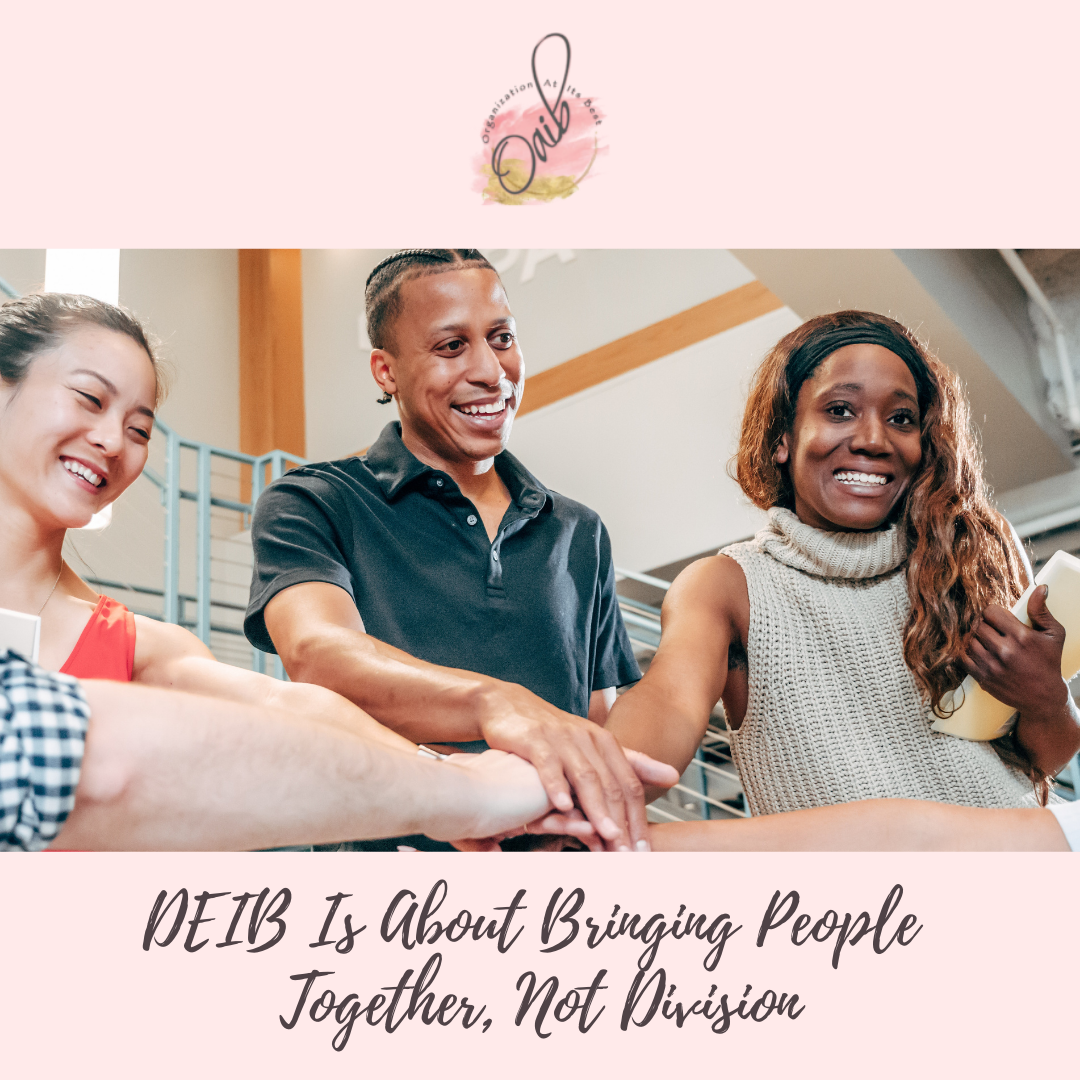
MAY 1, 2023
DEIB Is About Bringing People Together, Not Division
Recently, Diversity, Equity, Inclusion, and Belonging (DEIB) workplace programs have faced increasing opposition, with some people claiming that these programs are divisive and exclusionary.
However, it is important to recognize that the true intent of DEIB programs is to raise awareness about discrimination, create inclusive cultures where all employees feel safe to bring their best selves to work and build accountability for bad behavior.
Unfortunately, some organizations simply use DEIB as a tool for “performative allyship” and branding rather than as a sincere commitment to creating a more equitable workplace.
Some companies have used DEIB initiatives as a way to deflect criticism or to distract from unethical business practices.
Worse, some politicians are starting to weaponize DEIB.
All this not only harms the intended purpose of DEIB but also undermines the work of those who are committed to creating real change.
Despite all these challenges, we remain committed to DEIB because it is fundamentally about bringing people together, not dividing them.
One example of DEIB bringing people together is the story of Maria, a Latina woman who had worked in a male-dominated industry for over a decade.
Maria had often felt isolated and excluded at work, as she was one of the few women and People of Color in her department. However, her company began implementing DEIB programs and initiatives, and Maria noticed a significant shift in the workplace culture. She felt more included and valued, and she was able to connect with colleagues who had similar experiences. This increased sense of belonging not only improved Maria’s experience at work but also led to greater collaboration and productivity among her team.
A study by McKinsey & Company found that companies in the top quartile for gender diversity were 25% more likely to have above-average profitability than companies in the bottom quartile. Additionally, companies with ethnically diverse executive teams were 36% more likely to outperform their competitors.
While it’s true that DEIB programs prioritize the voices and perspectives of marginalized groups (as they are the ones most impacted by systemic discrimination and exclusion), this does not mean that DEIB is about creating division or promoting one group over another.
Rather, it is about creating a more equitable and inclusive workplace for all.
While there may be challenges and resistance to these initiatives, it is important to recognize the benefits they can bring to both individuals and organizations.
If you’re in a workplace where DEIB programs are viewed as a threat, rather than as an opportunity to grow and create a more equitable workplace, reach out. We can help.
Organization At Its Best Founder and Chief Executive Officer, Tawana Bhagwat, has more than twenty-five years of experience directing Human Resource administration, change management, learning and development, facilitation, DEIB, and executive coaching.

